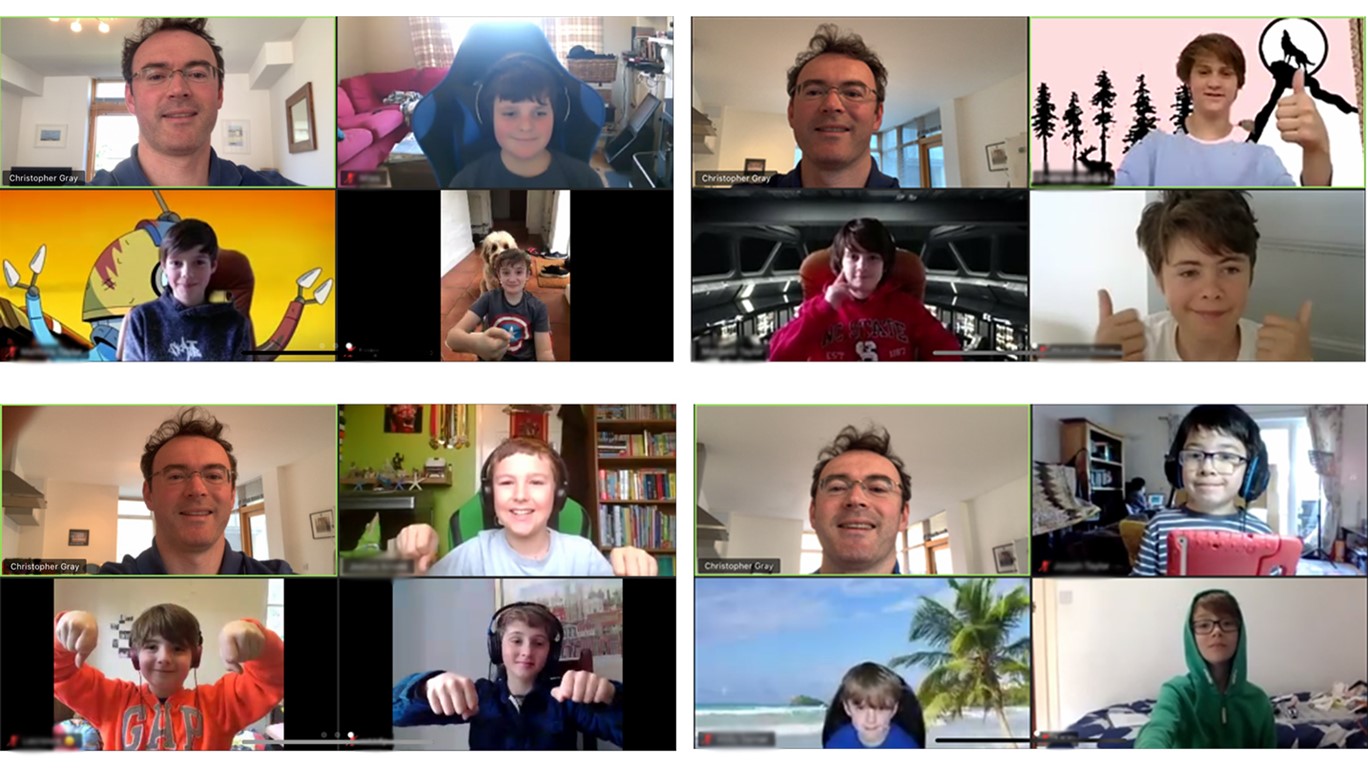The cathedral choir in lockdown

Speaking with colleagues in other cathedrals, it is clear that everyone is carving their own unique path through the current challenges. Everywhere is different and so their solutions will be different. There are some recurring themes though: everyone is concerned about maintaining the specialist musical skills our boy and girl choristers have worked so hard to acquire, and about keeping the boys and girls engaged without the regular personal contact that builds rapport. There is also a good dose of ‘fear of the unknown’ in terms of when singing may again be permitted in churches and cathedrals (or indeed anywhere).
Since lockdown began, I have been having Zoom sessions each week with all of the choristers by year group – usually around fifteen sessions in total, each with around four choristers. We do extensive warm-up exercises to try and keep the rust at bay, and then do some sight-reading and/or learning of new pieces of music which I scan and send to their parents in advance. The technology is not ideal in various ways, but we have worked out a way of making the sessions useful and fun. We are using online resources to teach theory and sight-singing. I also run a quiz for all of the boys every other Friday and all of the girls every other Tuesday. It’s great having the continuity of seeing and working with the choristers and it will make the rebuild much more manageable when we restart in due course. I suspect any vocal technique cobwebs will be balanced by a renewed passion and appreciation for the music we make together.
Looking to the future, it is not yet clear what the pathway back to normality, or a new normality, looks like for our cathedral choir (any more than it is for any choir at the moment). Rather than engage with speculation on that front, I offer a different thought that I hope might be ultimately optimistic: taking a step back to look at the big picture, this seems like a moment when human beings have realised they are not invincible. It really is possible, in the 21st century, for us to be confined to our homes, with normal life suspended. Perhaps the awareness of our own mortality (as a species, not simply as individuals) will be a catalyst for our taking greater care of our planet and each other. Perhaps we will prioritise more smelling of the roses in life – personally, during lockdown I have learned about and heightened my appreciation for birds, plants and Shakespeare; I’ve learned piano music and composed/arranged; and I’ve caught up on the phone in a meaningful way with a great number of good friends who, I’m ashamed to say, I may not have otherwise spoken to in such detail. I certainly don’t want to let any of those things slip when we get back to our new routine (though I could probably afford to lose a bit of Netflix time).
With innovations like Zoom sessions, online theory and sight-reading courses there is sure to be plenty of good practice that we will maintain and develop that will ultimately strengthen all that we do for the future. As we learn from the lives of so many of the great composers, adversity fuels creativity.

